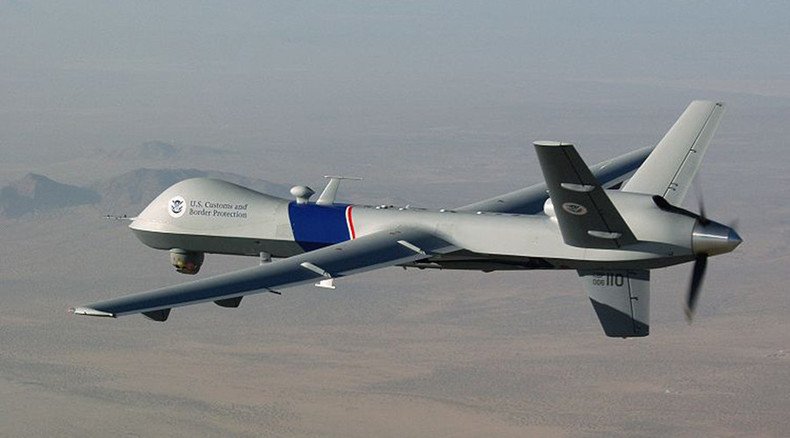Cameron to double UK drone fleet for fight against ISIS

The UK says it will spend hundreds of millions of pounds on buying new drones to help fight Islamic State. British Prime Minister David Cameron says he wants to double the fleet, as the country prepares to undertake military action in Syria.
PM Cameron wants to buy 20 new drones, known as Protectors, which can be used against Islamic State (IS, formerly known as ISIS/ISIL) militants in Syria and Iraq.
"We have at the moment a drone fleet of 10 Reapers and what we are going to be doing is actually replacing that with twice as many with a new updated piece of equipment - called Protector - which will be more than doubling of our fleet to keep us safe and to give us the intelligence and information and potentially give us the capacity to hit people who are potentially planning to hit us,” he said in an interview with the Daily Telegraph.
I can announce we will double our drone fleet and increase funding for special forces to combat the terrorist threat.
— David Cameron (@David_Cameron) October 4, 2015The Protector drones are able to stay airborne for much longer than the unmanned Reaper aircraft. They will also make significantly less noise, which will allow them to operate near militant strongholds without being detected.
Amongst their arsenal, the drones will also have high-definition cameras and infrared video, which will allow the drones’ operators to target the location of jihadists who are holed up in buildings.
“What I am clear about is one of the biggest threats we have to respond to is that terrorist threat and that means a lot of things in terms of obviously domestic security and our intelligence services, but it also means making sure that we have the military equipment and resources we need, so seeing an enhancement of our special forces and particularly on the issue of surveillance aircraft,” Cameron told the Daily Telegraph.
The British prime minister said he supports extending airstrikes into Syria, but would not push ahead with a vote until he has a consensus in parliament.
Cameron is looking to take advantage of divisions in the Labour Party camp, with new leader Jeremy Corbyn opposed to military action. However, the PM is looking to gain support from opposition MPs who don’t agree with Corbyn’s stance and favor launching military strikes in Syria.
“I think it’s the right thing to do. I think it may well become possible, but you know we will continue doing what we’re doing until it does,” Cameron said, when asked if he believed he could obtain the consensus needed in order to carryout military action.
The prime minister also didn’t rule out future drone strikes targeting British jihadist militants fighting for IS, such as Jihadi John, who is responsible for beheading a number of British hostages.
Killer drones hunting British jihadists for months, govt admits http://t.co/QVZV4sKXh5pic.twitter.com/biaJFwxloS
— RT UK (@RTUKnews) September 9, 2015The announcement by the British PM to “beef up support” for the Special Air Service (SAS) with extra drones comes just days after it was revealed that the UK drone development project would cost much more than initially planned.
The UK had ordered the design and competition of 54 Watchkeeper drones in 2005, at a cost of about £800 million. The final bill 10 years later is expected to be around £1.2 billion ($1.8 billion). A joint investigation by the Bureau of Investigative Journalism and the Guardian found that not only had the project gone significantly over budget, but also only three of the unmanned surveillance aircraft had actually seen active duty.
Colonel Richard Kemp, a former commander of British forces in Afghanistan, told the Guardian on Friday that the Watchkeeper was “just the latest of a string of examples of overdue and overcost defense equipment projects.”
“Only too often in defense procurement, the perfect is the enemy of the good. And there is no point striving for perfection if it arrives too late to actually do the job,” he added.












